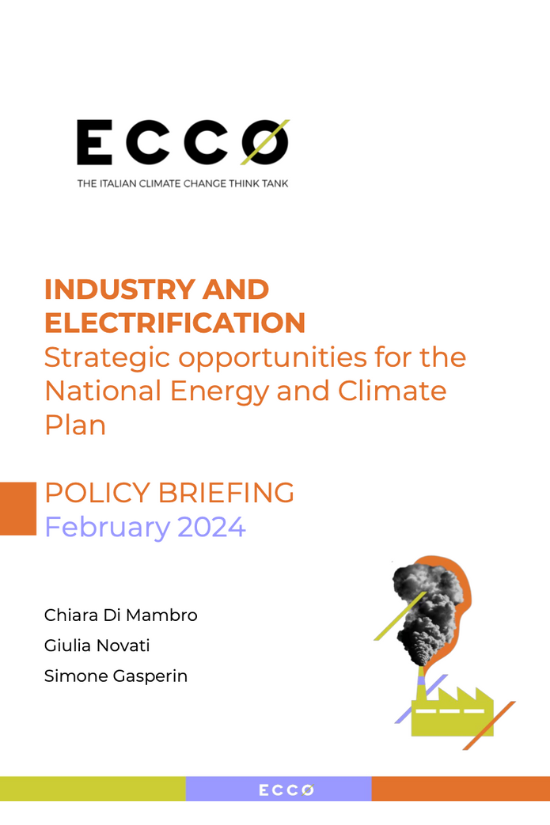Publications
Search
Filters
Authors
/ Alexandra Scott
/ Andrea Ghianda
/ Annalisa Perteghella
/ Beatrice Moro
/ Carolina Bedocchi
/ Caterina Molinari
/ Chiara Di Mambro
/ Chiara Mariotti
/ Chloe Pagliaro
/ Costanza Scano
/ Davide Panzeri
/ ECCO think thank
/ Eleonora Cogo
/ Federico Tassan-Viol
/ Filomena Annunziata
/ Francesca Andreolli
/ Francesca Bellisai
/ Gabriele Cassetti
/ Giovanni D'Amico
/ Giulia Colafrancesco
/ Giulia Giordano
/ Giulia Novati
/ Giulia Signorelli
/ Ilaria Mazzocco
/ Lorena Stella Martini
/ Luca Bergamaschi
/ Luca Iacoboni
/ Mario Noera
/ Marta Lovisolo
/ Massimiliano Bienati
/ Matteo Leonardi
/ Matteo Viola
/ Michele Governatori
/ Nicolas Drago
The significant contribution to national emissions by the manufacturing sector depends on its reliance on the use of fossil fuels for energy purposes, as well as on emissions that are inherent in certain production processes (e.g. cement, chemicals, etc.). Framing the country’s industrial development prospects within the path of reducing greenhouse gas emissions represents a strategic opportunity. The definition of the National Energy and Climate Plan (NECP) due by next June, is a unique opportunity for action.
The significant contribution to national emissions by the manufacturing sector depends on its reliance on the use of fossil fuels for energy purposes, as well as on emissions that are inherent in certain production processes (e.g. cement, chemicals, etc.). Framing the country’s industrial development prospects within the path of reducing greenhouse gas emissions represents a strategic opportunity. The definition of the National Energy and Climate Plan (NECP) due by next June, is a unique opportunity for action.
